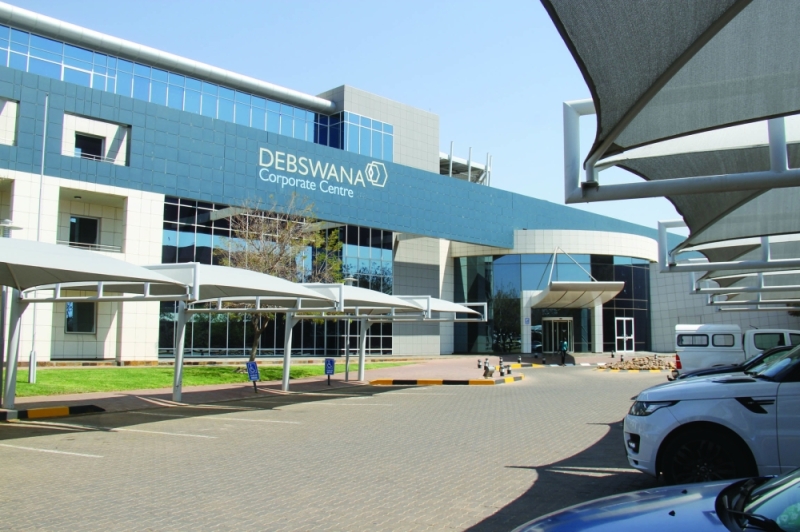A P21bn sabotage: Fronting floods Debswana CEEP
Staff Writer | Tuesday October 15, 2024 11:24


Allegations of fraudulent practices are rocking the mining giant’s mammoth citizen procurement initiative, which is also the country’s biggest citizen empowerment drive led by the private sector.
Information shared this week indicates that contractors who have been enjoying Debswana’s P21 billion citizen purse, appear to have been decoys and Trojan horses for private companies outside the country, who cannot get their hands into the Debswana pot due to foreign ownership.
Debswana executives this week publicly estimated up to 90% of the diamond mining company’s contractors under the CEEP are fronting for private sector players outside the country. The disclosure was further worsened by revelations that most of these operating companies have no business accounts in Botswana as their payment of salaries are made from outside the country.
Debswana Head of Supply Chain, Phillip Lisindi, told a business partners meeting in Gaborone that issues of collusion and fronting have been abundant, with Debswana suppliers mushrooming due to unfair practices facilitated by some Debswana employees for private contractors.
“We have found that 90% of service providers are fronting for companies outside the country,” he said. “During project appraisals when the said owners of companies are supposed to be answering technical questions, they are quiet and it’s always foreigners doing all the talking, showing that they don’t own these companies. “What is even more shocking is that most of these companies don’t have bank accounts in Botswana; salaries and liabilities are paid from outside the country. “This is a clear manifestation of fronting.”
The CEEP was established in 2019 to reinforce Debswana's 'Building Forever Strategy'. Through the strategy, the group has sought to procure more of its goods and services from citizen producers and suppliers, while developing supplier development programmes to empower them.
Initially, the programme had a set a goal to empower businesses with a spend of P20 billion, creating 20,000 jobs by 2024. As of April this year, the initiative had reached P19.5 billion in citizen spend, and a recent update showed that the programme had hit P21 billion as of last month.
The downside of realising and exceeding the P20 billion however is that the targeted growth of local manufacturing has been sabotaged, while capital has been escaping to other countries.
Lisindi further revealed that the fronting and collusion often manifests in foreign transfer of shares, where citizens are awarded contracts and a few days later the company ownership shifts to foreign partners. He further added that locals who are involved in fronting often have ownership without control, failing to make critical decisions regarding project management, without consulting international parties.
Meanwhile, Debswana Managing Director, Andrew Motsumi said that fronting practices have cast a shadow that seeks to threaten Debswana's citizen empowerment initiatives.
“Moreover, instances of financial mismanagement and fronting within our programme have surfaced, casting a shadow over the good intentions of our initiative. “Let me be unequivocal: Debswana will not tolerate such behaviour. “Strict consequence management will be applied to any business partner found to have misappropriated funds or engaged in fronting, which is a contravention of both Botswana’s laws and Debswana’s policies,” he said
Labour relations activists present at the event further shared that labour relations at mines had worsened ever since the introduction of CEEP powered companies. They revealed that workers are receiving minimal pay, working in compromising safety standards and being denied their rights of association through unfair labour hours.
Botswana Mine Workers Union President, Joseph Tsimako revealed that CEEP had “dilapidated” labour relations, perpetuating bad mining practices along the supply chain. Tsimako further accused Debswana of casually dumping its employees by transferring employees to Naledi Mining Company which offers short term contracts as opposed to its mother company Debswana.
“Debswana terminated Majwe mining contract in an effort to empower citizens, only to transfer mining workers to Naledi mining services which offers short term contracts as opposed to what Debswana does” he said. “We see this as a cost cutting measure” he said.
Majwe was the original contractor for the mammoth Cut 9 expansion programme at Jwaneng. However, after initially awarding the consortium the contract in 2019, Debswana cut the deal in 2021 and insourced the work.
Tsimako further raised concerns over how tenders are awarded at Debswana saying there is suspicion that Debswana employees are working with private players to win tenders at the cost of other local companies with better technical abilities.
